Jennieke Cohen is a Jewish-Filipina American author of young adult historical fiction. Her books have been translated into multiple languages. Jennieke’s debut novel, DANGEROUS ALLIANCE, was a Junior Library Guild selection, and her second novel, MY FINE FELLOW, was named a 2023 Sydney Taylor Award Honor Book. Jennieke studied history at Cambridge University and has a master’s degree in professional writing from the University of Southern California. She has worked as a nonfiction ghostwriter, a literary agent’s assistant, a writing consultant to Silicon Valley tech companies, and as a teaching artist. When not writing or researching little-known corners of history, you’ll find her over-analyzing old movies, cooking and baking up a storm, singing show tunes, or getting outside to enjoy the sun in her native Northern California.
I had the opportunity to interview Jennieke, which you can read below.
First of all, welcome to Geeks OUT! Could you tell us a little about yourself?
Thanks for having me! I’m Jennieke and I write historical fiction. My books highlight little or lesser-known corners of history and feature enterprising and/or strong-minded protagonists who go after what they want. In my spare time, I’m usually looking for my new favorite TV show, overanalyzing (AKA geeking out about) old movies, or getting outside to take care of my garden.
What can you tell us about your latest book, My Fine Fellow? What was the inspiration for this story?
My Fine Fellow came about because I was brainstorming ideas for things I would enjoy playing around with. I often go back to movies and books for inspiration, and one day I thought, “Has anyone done a My Fair Lady/Pygmalion retelling?” Then, I thought, what if I could do that while swapping the genders, and have two high-achieving young women teaching a young guy all about food—and make that his ticket into high society. So in that way, a bit of my love of food shows and competition shows like The Great British Bakeoff and Great British Menu made its way into the book. At the same time, I still wanted to take the issues of class that were inherently part of Pygmalion seriously, while also making it clear that the problems highlighted in the original story are not limited to any one gender, race, or religion.
As a writer, what drew you to the art of storytelling, specifically young adult fiction and historical romance?
I’ve always loved stories, whether it was reading them, hearing them, watching them, or making them up. But my favorite books as I was growing up were often historically set (or in a vivid setting far removed from my own life) and almost all had a romantic plot or subplot. And most of the stories I can point back to that were formative for me, I watched or read when I was an early teen. So when it came to my own writing, I believe I gravitated toward writing the kinds of books I would have loved to read as a teenager.
My Fine Fellow is an excellent example of showcasing diversity in a historical setting, including Jewish and mixed-race Filipino characters. Would you mind expanding on the research you’ve undertaken to include this in your work?
I had already done quite a bit of research on the British Regency period for my first novel, Dangerous Alliance, and I made the decision to have the timeline for My Fine Fellow deviate from ours during that time.
As I discuss in my historical note at the end of the book, there were many mixed-race people in Britain in the early 19th century. A mixed British-Filipina girl would have been rare, but not impossible since the British did occupy Manila in the 18th century, and even after they left, they continued to sponsor expeditions to the South Pacific. Since half my family is from the Philippines, I wanted to explore what the dynamics of being both white and Filipino could have been like in Britain in that time.
I also did a great deal of research about the Jewish experience in the early 1800’s. Even though the book is “alternate history” I wanted the Jewish experience I was portraying to be as true to the historical record as possible. My titular main character, Elijah, is the child of poor Jewish immigrants who, like so many at that time, didn’t have the money or influence to set him up in any kind of profession, so as a child, he works selling fruit on the street, and then later, he makes and sells pies at the Covent Garden market, which is where he meets Penelope Pickering (my British-Filipina character) and Helena Higgins, who will teach him to be a gentleman.
How would you describe your writing process?
Usually I begin by figuring out what I need to know to write the scene or chapter of the day. I’ll either write down some notes, or even a very abbreviated outline. Once I know where I’m going, I sit down and try to write it—sometimes on the computer, sometimes by hand, and sometimes I’ll even dictate if I’m slightly blocked or I think it’ll be faster. But every day can look different, depending on where I am in a story.
Growing up, were there any stories in which you felt touched by/ or reflected in? Are there any like that now?
The books that I found the most formative were probably Pride and Prejudice and Jane Eyre, because they opened up a whole world of British literature to me. I read all of Austen’s novels and even some of her juvenilia before I started high school. That lead me to Austen spinoffs, retellings, and other historical fiction, and then into historical romances. And later, into trying to write novels of my own!
As a writer, who or what would you say are some of your greatest creative influences and/or sources of inspiration in general?
I have to go back to Jane Austen again, but also Lucy Maud Montgomery, Louisa May Alcott, the Brontës, and Wilkie Collins. As for general sources, there are so many, but my go-to’s are movies of so many types and genres, theater and musicals, history, and my family, including generations who are no longer with us.
What are some of your favorite elements of writing? What do you consider some of the most frustrating and/or difficult?
I find drafting to be the most difficult. Sometimes things flow and it’s going great, but it’s still not easy. And some days, you have to write even if you think it’s garbage and you don’t know how you’re going to fix it later. My favorite parts of the process are when everything comes together in a scene after it’s been a difficult slog to write. Or when you’re re-reading and you find a piece that you don’t know how you did it, but it works really well somehow. Or a scene that just flows and where you get caught up in the story so much that you’re not thinking about flaws or bits you could improve. Things like that make the hard work of drafting feel worthwhile.
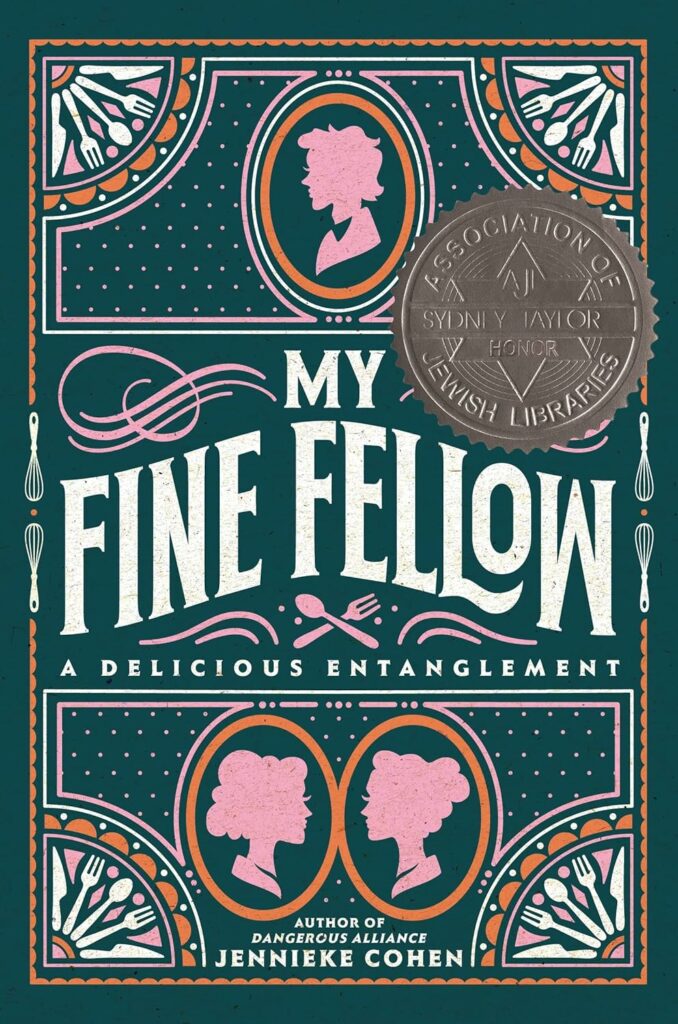
Aside from your work, what are some things you would want others to know about you?
One of my degrees is in economics, which I never did much with, but some have pointed out to me that my brain still seems to infuse economic elements and considerations into my books without realizing it. An odd kind of Easter egg to include in YA novels, but as has often been said, it’s hard to forget your training! I was also a film minor, which is why I’m so inclined to overanalyze movies, so some more intentional Easter eggs are tiny bits of dialogue that are nods to films I love.
What’s a question you haven’t been asked yet but that you wish you were asked (as well as the answer to that question)?
I would love for some chef to ask me if they could recreate some of the more complicated dishes in My Fine Fellow. (A number of people have made the chocolate coconut empanada recipe in back though, and some students created their own version of the “sweet buns” mentioned in the story, which was so fun to see!) My answer would be, “Hell yeah! And please FedEx me a taste!”
What advice might you have to give for aspiring writers?
Always take chances when submitting your writing. Of course, always be polite to anyone you ask to read your material—even when you get feedback that you don’t think is helpful—but don’t talk yourself out of sending things either. You can never truly judge if someone will like your writing. So always let others make their own judgements about your work and keep on sending it out into the world.
Are there any other projects you are working on and at liberty to speak about?
Unfortunately, nothing I can discuss at the moment—stay tuned!
Finally, what books/authors would you recommend to the readers of Geeks OUT?
I absolutely recommend the books of Tobie Easton: Emerge, Submerge, and Immerse, also known as the Mer Chronicles, a wonderful series about the descendants of the Little Mermaid who live on land in modern day Malibu. For historical fans who like a bit of mystery, check out Samantha Larsen’s Lady Librarian mysteries. The first in the series, A Novel Disguise was one of my favorite books last year. For clever contemporary YA mystery, check out Alexa Donne’s Pretty Dead Queens and her other thrillers. And for fantasy lovers who enjoy an alternate timeline (and a similar tone to My Fine Fellow) I have to mention my favorite historical fantasy, Jonathan Strange and Mr. Norrell by Susanna Clarke, as well as The Affair of the Mysterious Letter by Alexis Hall, and The Grace of Wild Things by Heather Fawcett, a delightful reimagining of Anne of Green Gables.

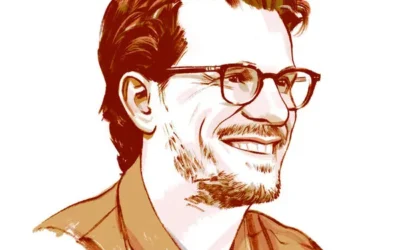
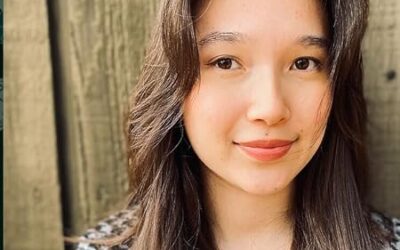
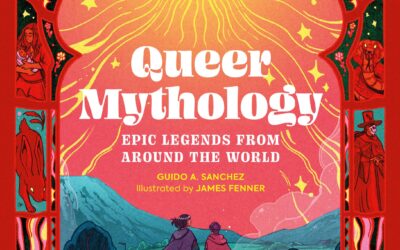
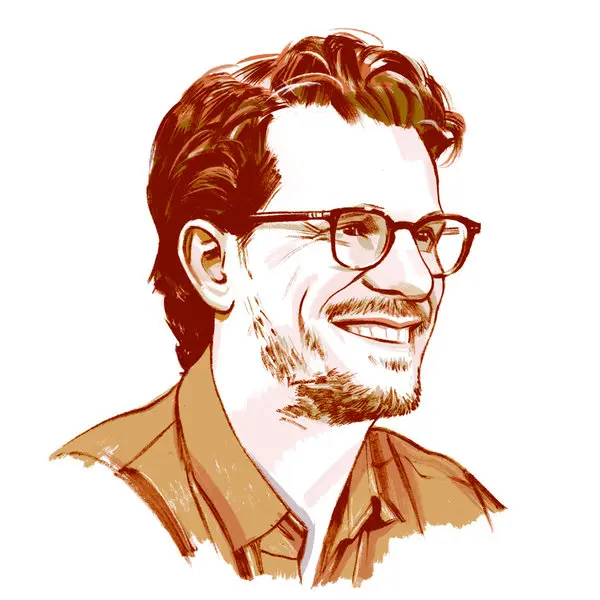
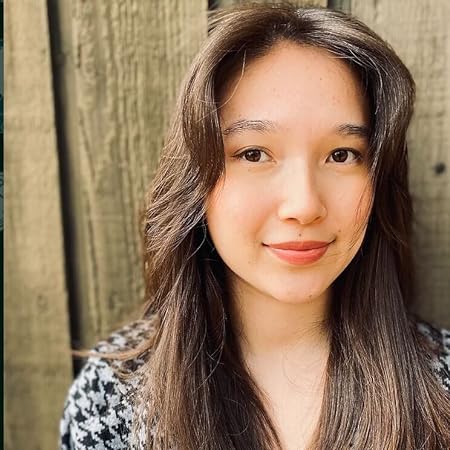
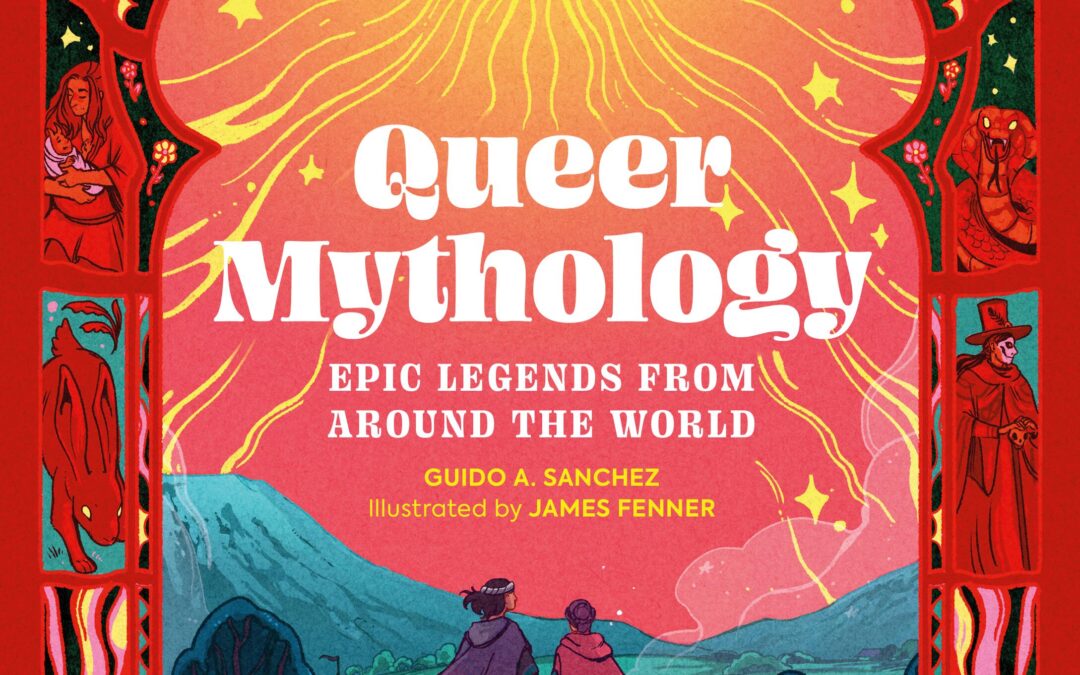
0 Comments